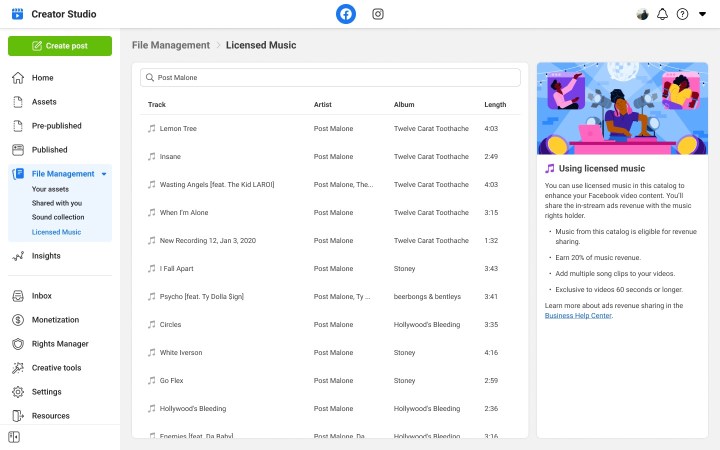A new revenue sharing program from Meta now allows Facebook video creators to make money off of videos that include licensed music.
On Monday, Meta announced via a blog post the launch of Music Revenue Sharing, a new program that lets creators earn money on videos that include “licensed music from popular artists.”

Essentially, the new program means that video creators on Facebook are now allowed to earn a portion of “in-stream ad revenue” on videos they created but also added licensed music to. In the past, Facebook creators were permitted to use licensed music in their videos, but then couldn’t make money off of those videos. With today’s launch of the Music Revenue Sharing program, creators are now allowed to do just that and can earn a 20% revenue share. A portion of revenue also goes to the music rights holders and Meta. And in terms of “popular music,” Meta’s blog post announcement offered up a few mainstream artists as examples, including Post Malone and Tove Lo.
But there are eligibility requirements and rules for participating in this program:
- The videos must be at least 60 seconds long and they can’t be Reels.
- Eligible videos also have to be published on a Facebook Page.
- Creators have to choose a song from Facebook’s Licensed Music Library. This library can be accessed in Creator Studio.
- The song you choose can’t be the main focus of the video. Meta’s announcement says that the video is required to have a “visual component.”
In order for creators to be eligible to participate in the Music Revenue Sharing program, Facebook creators are expected to meet eligibility requirements for in-stream ads and monetization standards. Creator content is also still subject to Facebook’s policies and “music guidelines.”
The Music Revenue Sharing program begins its global rollout today, but it’s specifically for in-stream eligible creators. For now, the monetization of eligible content will begin via in-stream ads in the U.S. Content monetization in this program is expected to expand worldwide in the coming months.
Editors’ Recommendations
